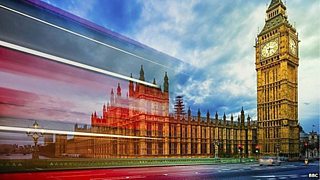Top 10 questions about hung parliaments
Robert Hazell
is professor of government and the constitution at UCL

1. What is a hung parliament?
It is certainly one possible outcome in a close-run election. This is the definition from Parliament’s own website: “When a general election results in no single political party winning an overall majority in the House of Commons, this is known as a situation of no overall control, or a 'hung Parliament'.”
2. Does the leader of the largest party become prime minister?
Not necessarily. The constitutional rule is that the politician who can command the confidence of the House of Commons becomes prime minister. This could be the leader of the second-largest party if he or she can secure sufficient support from third and minor parties.
3. Does the Queen play a formative role?
No. The political parties must establish between themselves who can command confidence in the new House of Commons. The Queen will be kept informed and will appoint that person as prime minister when the result of the negotiations becomes clear.
4. What if the negotiations result in a stalemate with two rival combinations staking equal claims to be the next government?
The default position is that the incumbent prime minister has the right to remain in office and meet the new parliament to test if he can still command confidence, as Stanley Baldwin did in 1923-24.
5. Will another hung parliament lead to another coalition?
Not necessarily. A minority government is equally possible. In the 20th century, Britain had 20 governments; five were coalitions and five were minority governments. It is also possible to have a minority coalition.
6. What is the role of the civil service?
The civil service will offer a location for the party negotiations (in 2010, it was the Cabinet Office); they will be available to offer information but not advice and act as note takers if required. In 2015, the parties may choose a different location, such as parliament, to keep away from the media.
7. How long will the negotiations take?
Longer than five days, for several reasons. There are likely to be more parties involved than the three which negotiated in 2010. Their backbenchers will insist on more thorough consultation, and endorsement by the parliamentary party before agreeing to any coalition agreement or support arrangements. It should also be noted that in 2010 it took 13 days to settle the full coalition agreement. The detailed Programme for Government was published on 19 May.
8. Who governs in the meantime?
The incumbent prime minister and his government remain in office. Under the caretaker convention, they cannot make decisions which would bind the hands of a future government. So they cannot make new policies, public appointments or important government contracts. If decisions cannot be deferred, the government must consult the opposition parties, as Alistair Darling did the weekend after the 2010 election when he attended the ECOFIN meeting on 9 May.
9. What happens to ministers who lose their seats?
They remain ministers even though they are no longer MPs. Jim Knight attended Gordon Brown’s last cabinet meeting on 9 May 2010 although he had lost his seat. In 1964, Patrick Gordon Walker was appointed foreign secretary by Harold Wilson even though he had lost his seat, and he served for three months until he also lost a by-election in early 1965.
10. Will there be a second election?
There has been talk of Cameron or Miliband forming a minority government and then calling a second election to strengthen their numbers, as Wilson did in 1964 and again in 1974. This is made much harder by the Fixed Term Parliaments Act which abolished the prerogative power of dissolution. Under the Act, parliament can only be dissolved by a two-thirds majority of all MPs (effectively requiring the support of both major parties); or following a vote of no confidence (passed by 50% plus one of those voting), if no alternative government is formed in 14 days. Some MPs have called for repeal of the Act, and others believe it could be overridden, but they have yet to explain how.
Robert Hazell is also director of the constitution unit at University College, London. This is a slightly edited version of his original post.
Election terminology explained, because we don’t all speak ‘Westminster’
Our other blogs by BBC political research editor David Cowling
This election will be complex, simple, social. So how do we cover it?
#GE2015: Polling has never been nearly this social
Reporting UK politics: Nick Robinson
